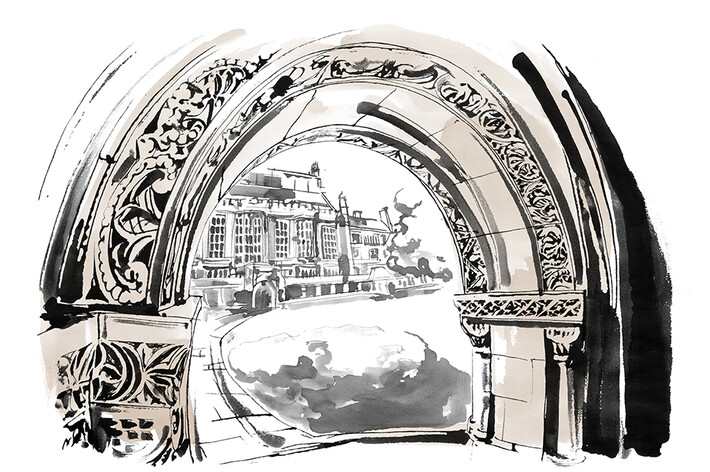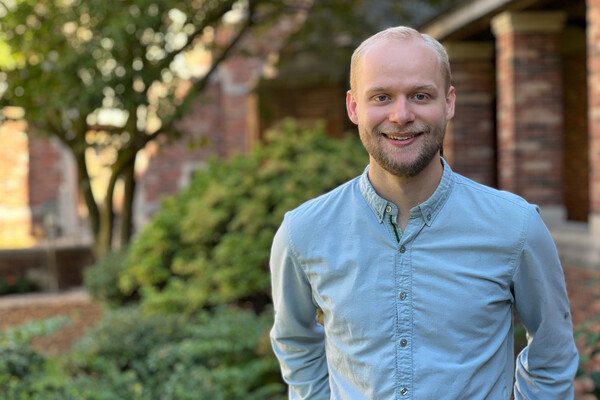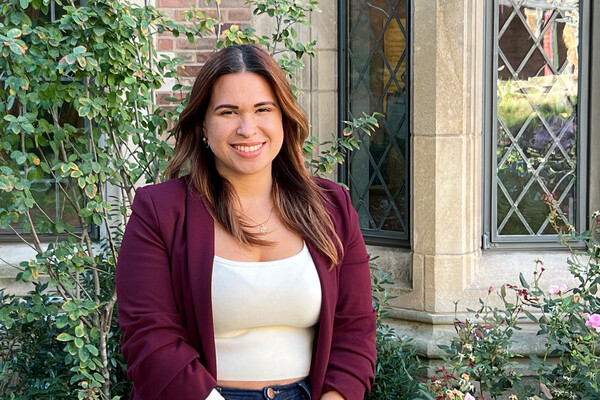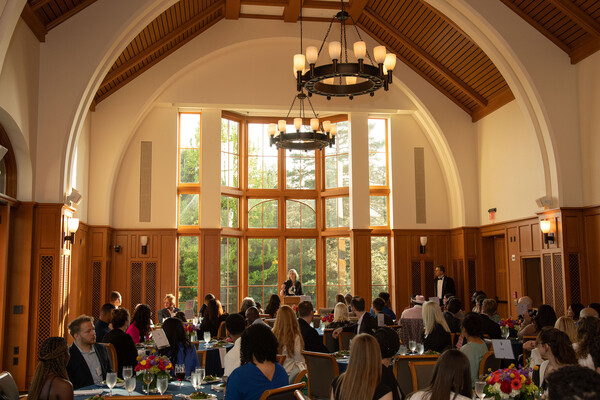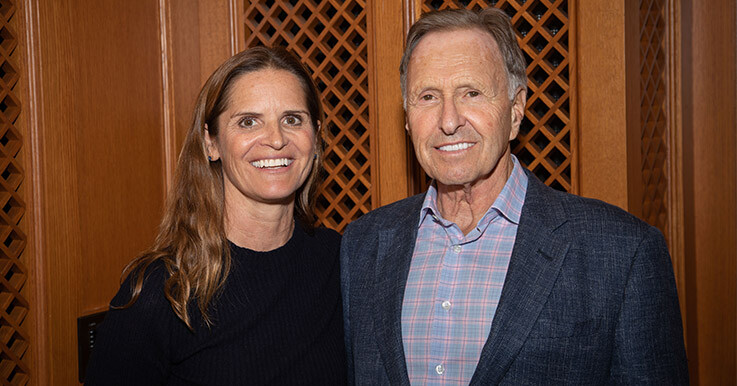My only job right now is to be a law student, and that is incredibly exciting.”
— Daniela Alvarez ’26
As the Soledad ’92 and Robert Hurst Horizon Scholarship Program turns two years old this month, the first-of-its-kind program has already expanded to remove cost as a barrier to law school for even more students — a total of 75 for this academic year. Since Yale Law School launched the program, several peer institutions have followed suit, sparking a new trend for financial aid in legal education.
First launched in February 2022, the Hurst Horizon Scholarship Program covers the cost of tuition, fees, and health insurance for students with the greatest financial need.
When Jack Sollows ’26 found out he was accepted to Yale Law School, his elation was immediately replaced with dread. How could he afford it? He knew that the Law School had a reputation for providing ample need-based financial aid. But Sollows, who grew up in a family that struggled to make rent at times and often lived paycheck to paycheck, wondered if that would be enough. Then he got the email explaining that the Hurst Horizon Scholarship meant that he could attend Yale Law School tuition-free.
“When I received the scholarship, I felt even more elated than when I was admitted to Yale. But more than that, I felt relieved,” Sollows said. “With Hurst Horizon, all the doubtful possibilities in my head became real. I could seriously consider the possibility of going to YLS — and after that, it wasn’t a real choice at all.”
In the program’s first year, 51 students received the scholarship. Since then, the Law School has expanded eligibility to include students from families with incomes up to 200% of the federal poverty line. This year, the program is covering 75 scholars — or one in eight Yale Law School students. In the class of 2026 alone, there are 33 Hurst Horizon scholars — about 15% of the current 1L class.
“This program sends a clear message that we recognize the many challenges faced by students from lower income backgrounds, and we understand the urgency of trying to level the playing field,” said Associate Dean of Admissions and Financial Aid Miriam Ingber ’04. “I am proud every time I have the opportunity to discuss the Hurst Horizon program with applicants, and I am confident it is making a difference in terms of who applies to and, ultimately, who attends Yale Law School.”
